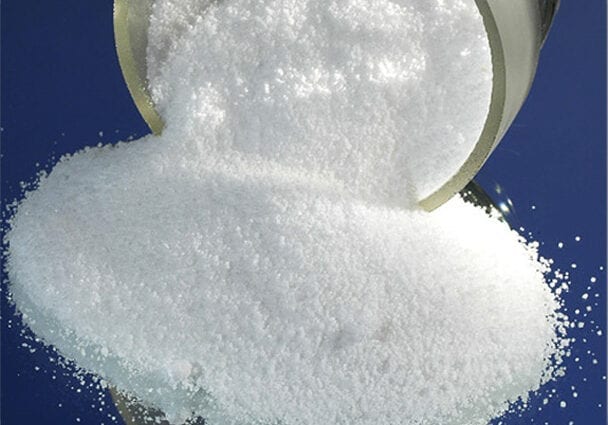Contents
Sodium nitrite (sodium nitrite, sodium nitric acid, E250).
Sodium nitrite, also known as E250, is a food additive that acts as a preservative and color fixative for food production. The chemical formula is NNaO2.
General characteristics
Sodium nitrite is a salt of nitric acid obtained from oxides by chemical reactions. Sodium nitrite usually looks like a white and slightly yellowish powder or small crystals, has no smell, tastes a little sour (calorizator). It has good hygroscopicity and quickly dissolves in water.
The use of Sodium Nitrite
Sodium nitrite has the properties of a strong antibiotic agent that can destroy the pathogens of many dangerous diseases, such as botulism.
The harm of Sodium Nitrite
Sodium nitrite is recognized as a general poisonous agent, including for mammals (50% of rats die at a dose of 180 milligrams per kilogram of weight), having high toxicity and carcinogenicity, with an overdose of the substance, serious poisoning occurs, often leading to death.
The use of sodium nitrite can cause a decrease in muscle tone and a sharp drop in blood pressure. The studies revealed the formation of the carcinogen N-nitrosamine in the reaction of sodium nitrite with amino acids when they are heated, which means the potential for the formation of cancer changes when eating products that have been heat-treated in the presence of sodium nitrite.
Recent studies have found a link between the use of such products and bowel cancer. There was also a link between frequent consumption of meat with nitrite content and chronic obstructive pulmonary disease.
Application of E250 Sodium Nitrite in the food industry
In the natural environment, fresh meat takes on a gray color after a few hours, which is due to the reaction with air. To avoid the unappetizing gray tint in meat and sausage products, the food industry widely uses the additive E250, which is a color fixator.
Therefore, almost all meat and sausage products are obliged to pink color E250. But sodium nitrite affects not only the color of products, but also is a so-called antibacterial agentthat protects products from the growth of bacteria and microbes.
Application of E250 in other industries
Sodium nitrite is used not only in the food industry, but also:
- In medicine, the vasodilating property of Sodium Nitrite is used, it is used as a laxative and bronchodilator, it neutralizes intestinal spasms and acts as an antidote for cyanide poisoning,
- In construction – as an antifreeze additive to concrete,
- In the textile industry – in the dyeing of fibers,
- In photography – as an antioxidant and reagent,
- In the production of rubber and dyes.
Norms and dosages of the use of sodium Nitrite
The standards for the use of Sodium Nitrite are strict, must be strictly followed. In the EU countries, E250 is allowed to be used only as an additive to salt and not more than 0.6%. In the case of an increase in the permissible dosage, sodium nitrite can cause significant harm to the human body.
Use of E250
On the territory of our country, there is a list of additives that are allowed for use. E250 Sodium Nitrite is included in this list, provided that the prescribed dosages are met.
Potassium nitrite, a food additive E249, has similar properties. Sodium nitrite in the form of powder or an aqueous solution is used as an antifreeze additive to concrete in the production of building products and structures, as an inhibitor of atmospheric corrosion, in organic synthesis and for other purposes in chemical, metallurgical, medical, pulp and paper and other industries.










